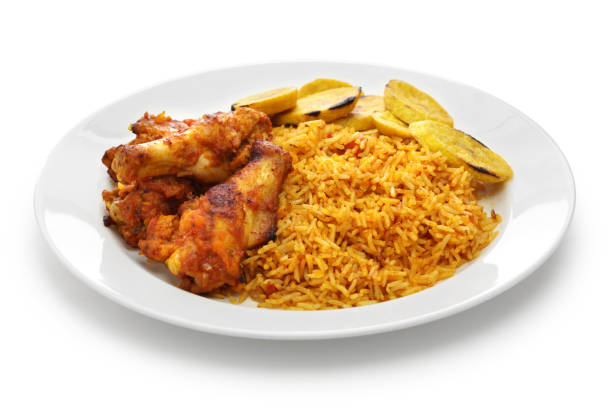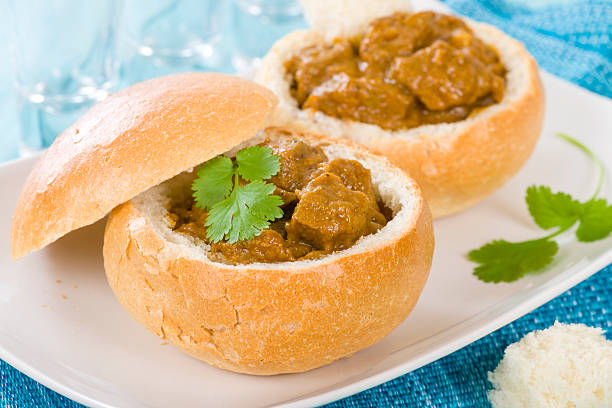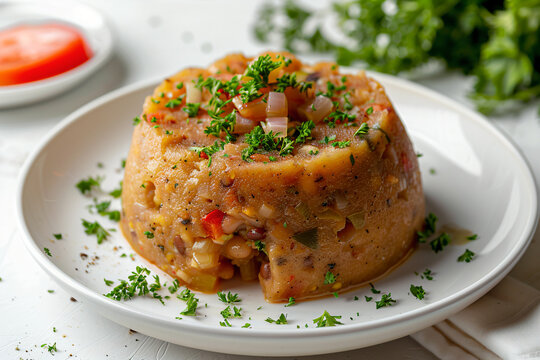Jollof Rice, often hailed as the crown jewel of West African cuisine, is not just a tantalizing burst of flavors; it’s also a nutritional powerhouse that weaves together a tapestry of essential nutrients. Originating from the culturally diverse regions of West Africa, Jollof Rice has transcended borders to become a beloved dish celebrated for its rich taste and healthful benefits.
Complex Carbohydrates for Sustained Energy:
At the heart of Jollof Rice lies a foundation of complex carbohydrates, primarily from rice. These carbohydrates serve as a key energy source, providing sustained and readily available fuel for the body. The slow-release nature of complex carbohydrates helps maintain steady blood sugar levels, contributing to lasting energy throughout the day.
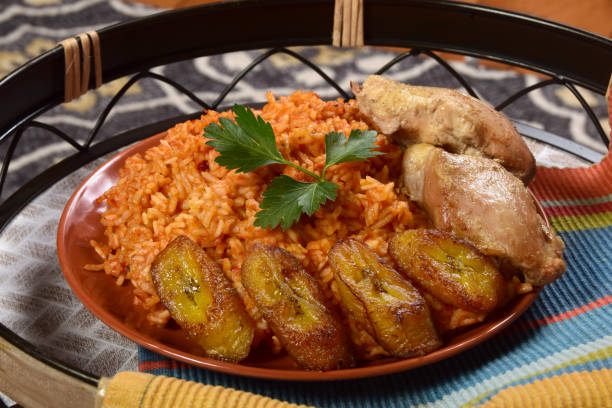
Protein from Varied Sources:
Jollof Rice is often prepared with an array of proteins, such as chicken, fish, or legumes, adding a protein boost to the dish. Proteins are essential for muscle repair, immune function, and the synthesis of enzymes and hormones. The combination of rice and protein sources in Jollof Rice creates a well-rounded meal that contributes to overall protein intake.
Rich in Vitamins (B Vitamins, Vitamin C):
Jollof Rice incorporates ingredients that bring a medley of vitamins to the table. The dish often includes vegetables like tomatoes, onions, and bell peppers, providing a generous dose of vitamin C, which supports immune health and collagen synthesis. Additionally, the B-vitamin complex found in Jollof Rice, including thiamine, riboflavin, and niacin, plays crucial roles in energy metabolism and overall well-being.
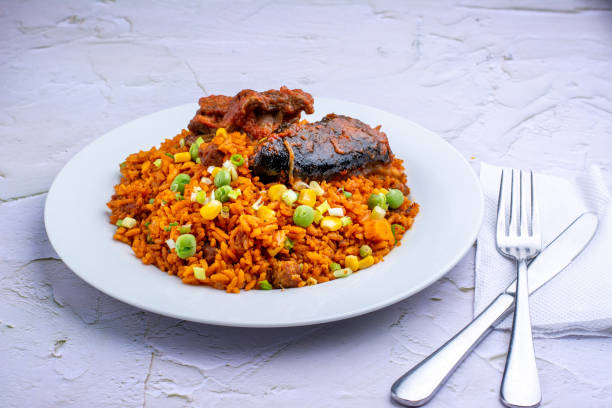
Diverse Micronutrients:
The inclusion of vegetables and spices in Jollof Rice introduces a variety of micronutrients such as potassium, magnesium, and antioxidants. These micronutrients contribute to various physiological processes, including heart health, muscle function, and cellular protection against oxidative stress.
Heart-Healthy Components:
Jollof Rice often incorporates heart-healthy ingredients such as tomatoes, which are rich in lycopene, a powerful antioxidant associated with cardiovascular benefits. The use of plant-based oils, such as palm oil or vegetable oil, adds unsaturated fats, supporting heart health when used in moderation.
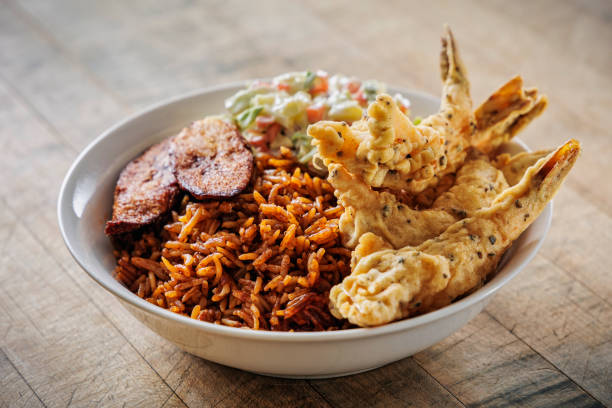
Fiber for Digestive Wellness:
The dish benefits from the fiber content present in ingredients like vegetables and whole grains. Fiber promotes digestive health by preventing constipation, supporting a healthy gut microbiome, and contributing to a feeling of fullness. The fiber in Jollof Rice adds a digestive-friendly dimension to the meal.

Culinary Heritage and Social Significance:
Beyond its nutritional merits, Jollof Rice carries cultural and social significance. It is a dish that reflects the diversity of West African culinary traditions, with variations influenced by local ingredients and preferences. Shared during celebrations, gatherings, and family meals, Jollof Rice fosters a sense of community and connection, making it more than just a meal but a cultural centerpiece.
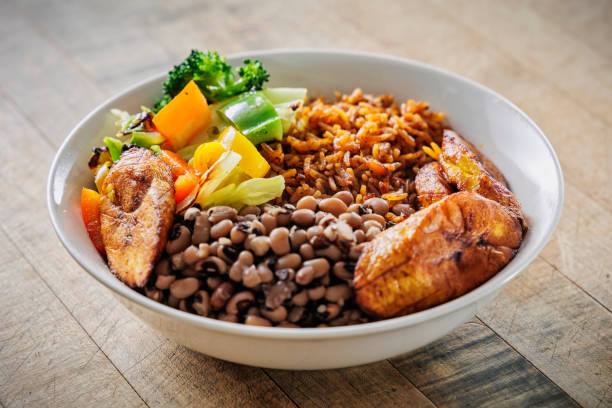
In conclusion, Jollof Rice stands as a testament to the rich intersection of flavor and nutrition. As we savor its vibrant taste and appreciate its nutritional contributions, we partake in a cultural and culinary journey that celebrates the healthful benefits of this iconic West African dish. From providing sustained energy to offering a spectrum of essential nutrients, Jollof Rice remains a symbol of both culinary excellence and nutritional richness in the diverse and flavorful landscape of global cuisine.

